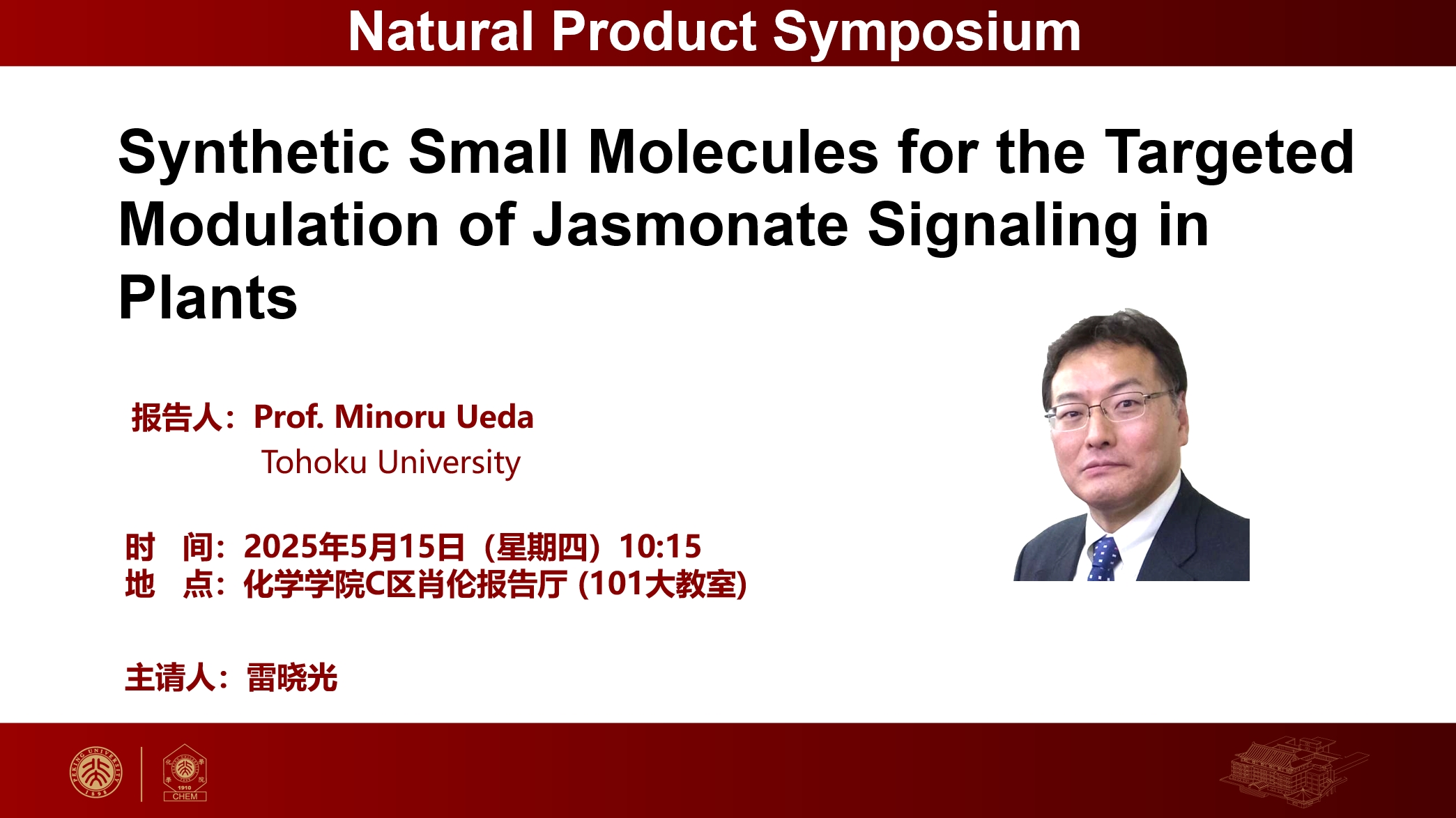
Abstract
Jasmonates, plant oxylipins, comprise a pivotal class of lipid-derived plant hormone that orchestrate a wide range of biotic interactions, including those with phytopathogens and herbivorous insects, as well as modulate the biosynthetic pathways of specialized metabolites. Despite their critical roles in plant defense, the translational potential of jasmonate-mediated signaling has been limited by the inherent “growth-defense trade-off,” wherein activation of JA signaling concomitantly inhibits plant growth and development. We have demonstrated that this trade-off can be circumvented through the use of rationally designed synthetic ligands with selective affinity for specific subtypes of the COI1–JAZ receptor complex. In this presentation, I will present our latest findings on synthetic small molecules capable of enhancing the biosynthesis of steroidal alkaloids in Solanum lycopersicum without compromising vegetative growth, offering a promising strategy for decoupling growth and defense responses in crop species. References M. Ueda et al., Recent advances in the chemistry and biology of oxylipin plant hormones, Nat. Prod. Rep., in press (2025)